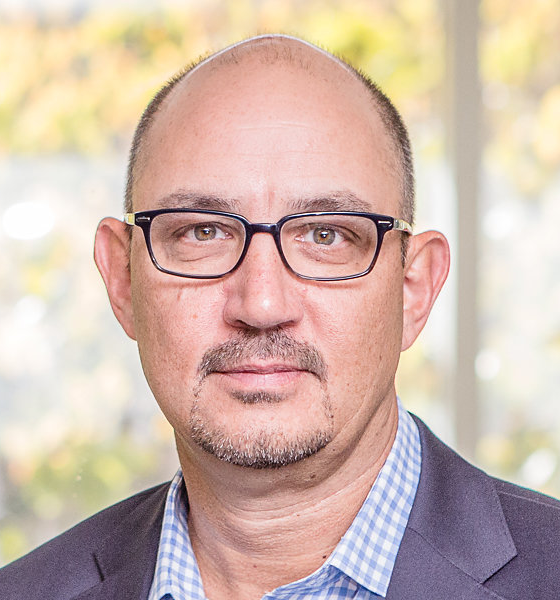
Francis R. Amato is Chief Executive Officer of electroCore, Inc. Prior to being the Chief Executive Officer and joining electroCore in 2012, Mr. Amato spent 22 years in the pharmaceutical industry, most recently at Merck, where he served as Vice President of the Specialty Commercial Operations Group within Global Human Health. Mr. Amato has extensive commercial experience in health care, serving previously as Executive Director, Global Business Operations at Schering-Plough; Business Unit Lead, Oncology at Ligand Pharmaceuticals; National Sales Director, Specialty Managed Markets at Pfizer Inc.; and National Sales Director, Hospitals at Pharmacia Corporation.
In this 3,389 word interview, exclusively in the Wall Street Transcript, Mr. Amato makes a case for his medical device company with investors:
“We are dedicated to improving patient outcomes through patient-administered noninvasive vagus nerve stimulation — nVNS — therapy as provided by the gammaCore device that is placed on either side of your neck, next to your trachea. You stimulate the nerve for two minutes at a time. When you say direct competition, we look at our primary competition being medication.”
The global business development of electroCore is being managed directly by the company:
“In Europe, basically, you can get your CE mark first, then you run your clinical and pivotal studies, and then you apply for reimbursement in the single-payer health care systems.
Whereas in the United States, you go to the FDA, get an agreement, or what is called an IDE — investigational device exemption — to run a study, and then you take that data, bring it back to the FDA, and they consider your therapy for approval.
Once you get that approval, then you can go out and start to petition the commercial health care and the government-covered health care in the United States for reimbursement. That is the big difference between the two systems there.
You can get a CE mark pretty easily if your therapy is safe. A lot of companies do that for the purposes of running their clinical trials. It is really a clinical trial strategy more than anything else.”
See what comes next for electroCore under Mr. Amato’s guidance in the complete 3,389 word interview, exclusively in the Wall Street Transcript.
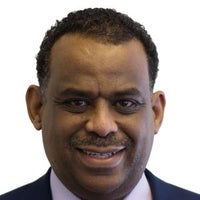
Lishan Aklog, M.D., has been Chairman and Chief Executive Officer of PAVmed Inc. since its inception.
Dr. Aklog previously served as Chairman and Chief Technology Officer of Vortex Medical Inc., a PHG portfolio company, from its inception in 2008 until its acquisition in October 2012 by AngioDynamics Inc. (NASDAQ:ANGO) for $55 million.
Dr. Aklog is an inventor on 13 issued patents and over 30 patent applications, including the core patents of Vortex Medical’s AngioVac system and the patents for a majority of the company’s products.
In this exclusive 6,174 word interview, only in the Wall Street Transcript, Dr. Aklog details the current status of his company’s products and details the investment scenario for his company.
“Assuming that goes well, we will be in a position to have it cleared by the FDA and to be ready for marketing by the end of this calendar year.
The market opportunity for this is massive. If you take the 600,000 patients who undergo surgery every year now, based on an estimated average sales price driven by reimbursement profiles from ambulatory surgery centers and surgeons who perform this procedure, that gets you right to a $1 billion market opportunity range.
That is immediately addressable. There is also a broader market opportunity for those 1 million to 1.5 million patients who are deferring surgery who we believe would stop suffering in silence and seek a treatment for this condition if it was offered as something with less invasiveness.”
Dr. Aklog’s company has other devices being developed:
“The patient swallows the capsule. The operator, in this case, is the nurse, and he or she helps it along to the stomach.
There is a balloon within the capsule that is inflated, and as it is withdrawn, the operator can sample the cells of the lower esophagus. A key differentiating aspect to this, relative to anything that currently exists, is that when you deflate the balloon, it pulls the cells into the capsule and protects them.
So for the rest of the way out as it moves through the esophagus, there is no contamination with or dilution from other cells. You are really getting an optimal sample.”
Get the full details on this and several other treatments bny reading the entire 6,174 word interview in the Wall Steet Transcript today.
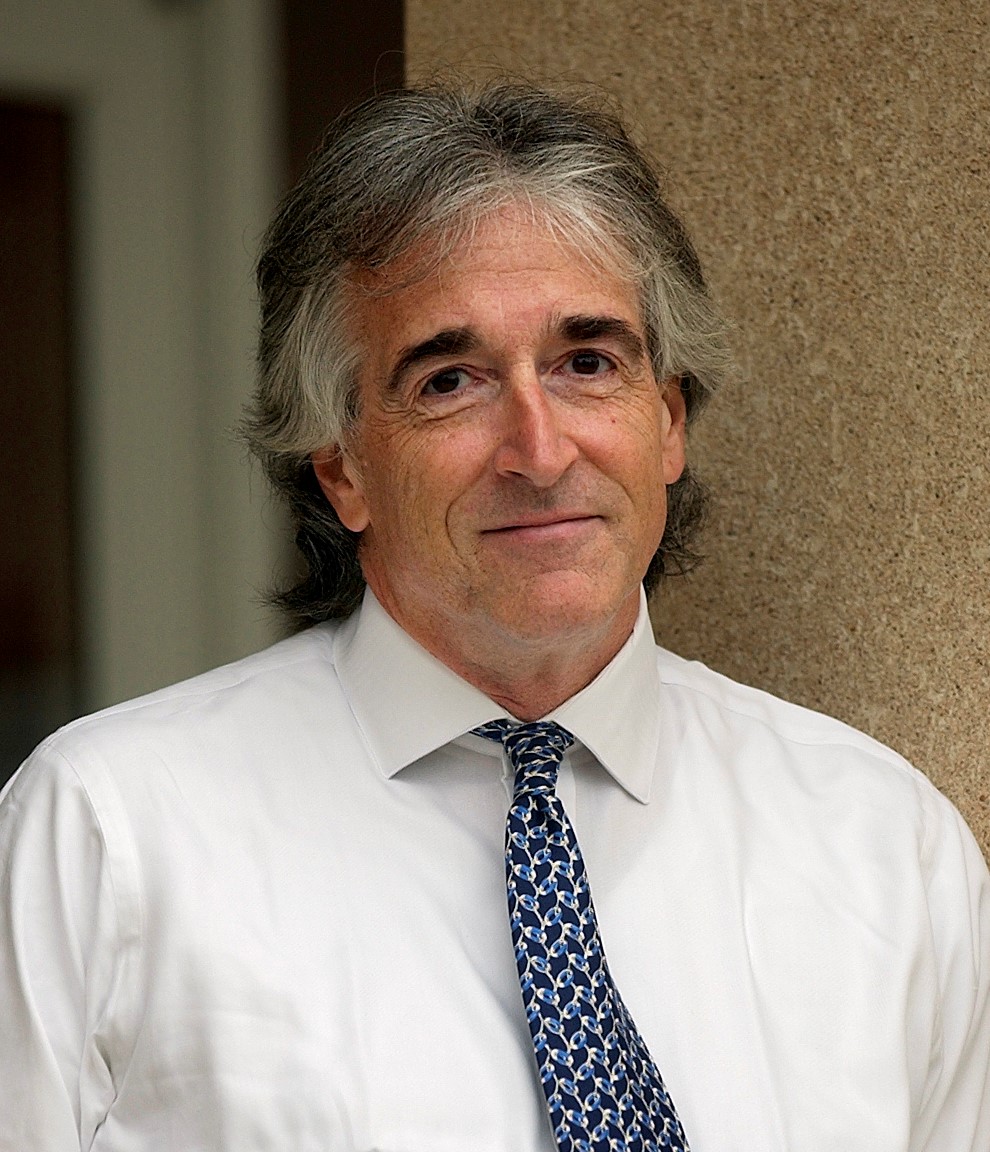
Timothy C. Rodell, M.D., FCCP, is Interim Chief Executive Officer and Director of Aethlon Medical, Inc. Dr. Rodell joined Aethlon in December 2018 as Interim Chief Executive Officer.
Previously, he was President, Chief Executive Officer and a member of the board of directors of GlobeImmune, Inc. from 2002 until 2016 prior to a majority acquisition of the company. He remains a member of the GlobeImmune board of directors.
During his over 30-year career in the biopharma industry, Dr. Rodell has built a wealth of experience in global product development, operations and financing, including raising over $300 million in domestic and foreign private and public financings.
At GlobeImmune, Dr. Rodell led the company through the advancement of five products from the bench into human clinical trials and closed multiple financings, including an IPO and the establishment of two major corporate alliances. Prior to GlobeImmune, Dr. Rodell was President and Chief Executive Officer at RxKinetix, Inc. and has held senior management positions at OXIS International, Inc. and Cortech, Inc.
In this 3,949 word exclusive interview with the Wall Street Transcript, Dr. Rodell reveals the current situation at Aethlon and explains his strategy for increasing investor returns in the company.
“…The most important thing they do, from our perspective at Aethlon, is that they are profoundly immunosuppressive. They block our normal immune system response to tumor cells. Our immune system is capable of recognizing tumor cells in the same way it recognizes bacteria and viruses.
Tumors have generated multiple different mechanisms of suppressing the tumor immune response. One of the places that we are looking to use the Hemopurifier is to remove those immunosuppressive exosomes to make therapies that use the immune system more effective.
There are a number of therapies I am talking about, but some of the most important ones are the so-called checkpoint inhibitors. These are the molecules that actually unleash the immune system.
For diseases like melanoma and lung cancer and a number of others, this therapy has shown a remarkable ability to control the tumor and allow patients to live, in some cases, years with very advanced disease.
What is striking about those agents, such as pembrolizumab and nivolumab, in patients who respond, the impact can be miraculous. Unfortunately, 70% to 80% of patients do not respond to therapy at all.
Our hypothesis is that if we can use the Hemopurifier to remove those immunosuppressive exosomes that have been shown in multiple labs to block the efficacy of those checkpoint inhibitors, then we will be able to increase the percentage of patients who respond and potentially extend the duration of those responses.”
Read the entire 3,949 word interview with the Aethlon Medical CEO, Dr. Rodell.

Matthew Mishan, CFA, is Vice President, Equity Research Analyst at KeyBanc Capital Markets Inc. — KBCM. His research coverage is focused on medical products.
Prior to his promotion to Senior Analyst, Mr. Mishan worked in equity research product management for KBCM. Before that, he was a research associate on KBCM’s automotive team for several years.
In this exclusive 2,963 word interview, exclusively in the Wall Street Transcript, Mr. Mishan details his view on the investment opportunities in the medical technology sector.
“You have developed markets, including a U.S., European and Japanese base of revenue, as well as companies that are really building up their emerging markets’ infrastructures.
Despite what we have seen in some of the global slowdown and the Brexit-related questions, we have not seen any kind of real change to demand coming out of Europe or the emerging markets.
While some industrial companies have seen a purchasing slowdown, we have not seen the buildout of health care infrastructure delayed in the emerging markets and China in particular.
It is just a priority for those countries to build out their health care infrastructure. If there is going to be a gigantic trade war about to break out, health care might be the very last front to get touched.”
Mr. Mishan explores the opportunity presented by one his favorite stocks:
“My favorite name is still Avanos. The rationale behind Avanos as a medical device company is that it was originally part of Kimberly-Clark (NYSE:KMB) and spun out as an entity called Halyard Health that had two pieces to it.
It had a high growth, high margin medical device piece and then also $1 billion in sales of lower margin commodity items like surgical gowns, gloves and all of the everyday stuff that you would see in the hospital.
They sold to a distributor, Owens & Minor (NYSE:OMI), the low margin commodity-oriented medical supplies business. They are now left as a smaller device business.
It is going to take some time for them to realize their value as the divestment left them with a lot of stranded costs, but when you look at what the company and its building blocks are, you have high market share positions and good growth opportunities with high margins.”
Get the complete detail on Avanos and many other stocks by reading the entire 2,963 word interview, only in the Wall Street Transcript.
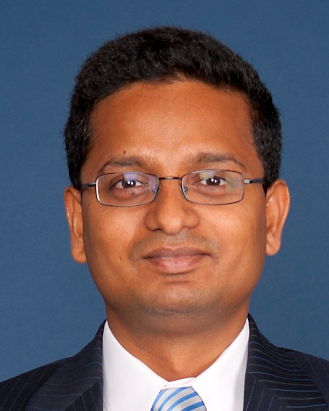
Vijay Kumar is Managing Director, Healthcare Services & Technology Research Team at Evercore ISI. Vijay Kumar is an analyst at Evercore ISI who is primarily focused on the medical supplies and devices and diagnostics subsector.
Dr. Kumar’s research expertise spans the diagnostic, medical equipment and medical supplies subgroups. Prior to joining Evercore ISI in 2012, Dr. Kumar spent three years at Deutsche Bank Securities as a research analyst on the health care services and technology research team.
Dr. Kumar began his career at Irevna Research Ltd. Dr. Kumar graduated from the Indian Institute of Management, Bangalore, and is also a Doctor of Medicine.
In this exclusive 3,172 word interview in the Wall Street Transcript, Dr. Kumar develops his thesis for some investment opportunities in the medical technology sector.
“Medtronic is probably the poster child of being undervalued right now. It has had some issues from a product-cycle perspective.
From a longer-time-horizon perspective, these are temporary hiccups. It has massive product cycles upcoming. An organic inflection for them is in about six to 12 months, so the stock is massively discounted.
Investors or the Street seems to not be giving them any credit for that inflection in top line. It is the poster child for a company that is on the cusp of an inflecting top line that has been driven mainly by innovation but which is not being priced into the stock right now.”
The diabetic and obese condition of many people are driving medical technology innovation for select companies:
“They have a flexible endoluminal system. You can insert the flexible robotic arm through the mouth. The hope is that maybe the arm is long enough so you can reach all the way to the stomach and conduct bariatric surgeries.
That eliminates the need for any sort of incisions on the abdomen. Those are companies that participate in the obesity market.”
Get the complete picture on this and many other top picks from Dr. Kumar by reading the complete 3,172 word interview, exclusively in the Wall Street Transcript.
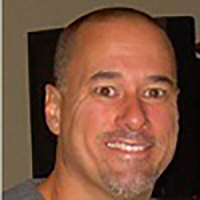
Brian Marckx, CFA, is Director of Research and Senior MedTech Analyst at Zacks Investment Research. Prior to joining Zacks, Mr. Marckx worked as a high yield bond analyst on Wachovia Securities’ institutional trading desks where he specialized in the health care and industrials industries.
Prior to that, he was an analyst in corporate finance at First Union National Bank. Mr. Marckx has covered the medical device, pharmaceutical and biotechnology industries since joining Zacks in 2007.
Brian Marckx has been quoted in numerous publications, including The Wall Street Journal, Barron’s, Bloomberg Businessweek and Kiplinger. His work has also been cited in various market studies and working papers, including those from Massachusetts Institute of Technology, Deloitte & Touche and Pharmaceutical Manufacturing.
In this 3,814 word interview, exclusively in the Wall Street Transcript, Mr. Marckx reveals how the medical technology sector is reacting to recent economic developments.
“…Reimbursement is probably the biggest determination on whether a novel device is going to be successful right off the bat.
You may have FDA approval for a device or a diagnostic, but if the insurance companies don’t pay for it, then it is an uphill battle. That is probably the biggest challenge.
Even if medical technology is considered novel, and typically there is already something out there that addresses the same disease or condition, then it still comes down to reimbursement for a lot of the companies that I cover.
There is a lot of work put into clinical studies. Investors focus on if the pivotal study is positive.
The belief is that the device is going to ultimately be a commercial success, but when there is not reimbursement in place, it is almost always an uphill battle to get the adoption curve at a point where the company can be self-sustainable.”
See the stocks that Mr. Marckx identifies as the best of the best meeting this hurdle in this exclusive 3,814 word interview, only in the Wall Street Transcript.
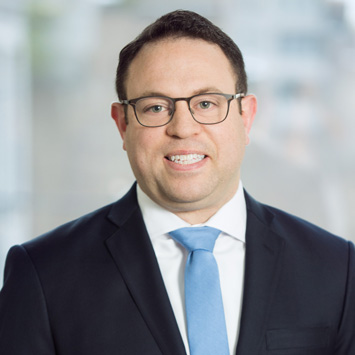 qui
qui
Ryan Zimmerman is Director and Medical Technology Analyst of BTIG. Mr. Zimmerman provides coverage across the medical technology sector, focusing primarily on orthopedic and surgical companies.
Prior to BTIG, Mr. Zimmerman was a senior associate at Canaccord Genuity, providing medical technology coverage with an emphasis on musculoskeletal companies.
Previously, he was the Director of Surgery at Advocate Christ Medical Center, where he oversaw operations for a Level 1 trauma hospital in the Chicago area. Mr. Zimmerman also held hospital management roles at Presence Health and was a fellow in hospital management at the University of Pennsylvania Health System.
He is board certified in hospital management and is a fellow in the American College of Healthcare Executives.
In this 3,174 word interview, exclusively in the Wall Street Transcript, Mr. Zimmerman details his investment coverage and reveals his top picks for investors now:
“…You are seeing broad development of robotics, not just in general surgery with companies like Intuitive Surgical (NASDAQ:ISRG), but you are seeing it in musculoskeletal care with Stryker’s Mako robot as well as Globus’ (NYSE:GMED) ExcelsiusGPS robot.
These are trends or products on the forefront of clinical paradigm shifts in terms of the way we treat these cases.
We are also seeing a lot of interesting technologies coming on board in regenerative medicine, so companies like Vericel that has cell therapy products for the treatment of cartilage or AxoGen (NASDAQ:AXGN) that has products for nerve repair.
These are fundamentally changing how these treatments are done or how these patients are treated.”
The analyst has several top picks:
“Our top pick this year is a company called OrthoPediatrics. We have a “buy” rating on OrthoPediatrics at a $44 price target. As its name implies, it is focused on the pediatric orthopedic market.
They have developed a variety of surgical systems and products for children with musculoskeletal conditions, whether it is scoliosis in the spine, hip dysplasia, femur impingement or other types of orthopedic conditions.”
Get the complete investment thesis for this and several other stocks, only in this exclusive 3,174 word interview in the Wall Street Transcript.
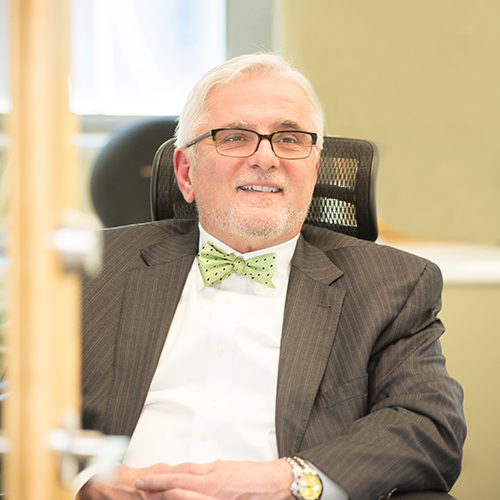
Scott Schermerhorn is Managing Partner and Chief Investment Officer at Granite Investment Advisors. He has over 30 years’ experience in the sector. He has been interviewed by CNBC’s Squawkbox, CBS News, Fox Business News, The Wall Street Journal,Investment News, Barron’s, Bloomberg, Yahoo Finance, The Fiscal Times and The Business Times. He is also an adjunct business professor at Boston University, from which he received a bachelor’s degree. He also holds an MBA from Seton Hall University.
In this 4,386 word interview, exclusively in the Wall Street Transcript, Mr. Schermerhorn details his analysis on many of this favorite stocks and some of the ones he wants investors to avoid, including Tesla:
“This market is buying into good stories without going into too much detail. How many times has Tesla (NASDAQ:TSLA) made promises that it failed to deliver on? Yet investors still get rewarded with a very rich multiple far greater than profitable auto companies.
Eventually, investors are going to tire of that. They are going to start valuing for what it really is, a challenged automotive company that’s burning cash…
Investors are betting they are going to disrupt the established business models. They may disrupt them a little on the margin.
However, it’s unlikely that they’re going to disrupt them to the degree that investors believe is going to happen. Given its lofty valuation, which is close to Ford’s (NYSE:F), will Tesla soon sell more cars than Ford or be more profitable? Unlikely.”
Mr. Schermerhorn also has advice on the macroeconomic cycle:
“Yes, we will go into another recession at some point in time; when this happens, no one knows. However, we don’t believe it’s going to be anywhere near as severe as the financial crisis.
The financial crisis was much worse than a typical recession. It ended up being a global depression, which is very, very, different. Recessions are normal in business cycles; depressions are not.
Many investors are expecting a repeat of 2008, which we don’t see in the cards because simply we are not seeing the wild speculation that you saw before the financial crisis.”
Read the entire 4,386 word interview to get the full detail on where Mr. Schermerhorn is directing his massive portfolio today, exclusively in the Wall Street Transcript.
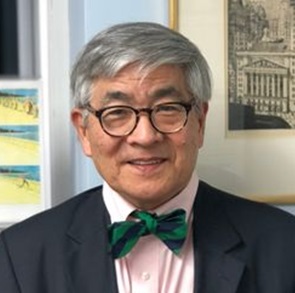
Graham Tanaka, CFA, is President of Tanaka Capital Management. He has over 45 years of experience as an analyst and portfolio manager and over 30 years’ experience managing mutual funds.
He is an engineering graduate of Brown University and received an MBA from Stanford University. He was a metals and mining, farm machinery, conglomerate, housing, building materials and real estate analyst at Morgan Guaranty — J.P. Morgan — and a technology and special situations analyst at Fiduciary Trust International.
He has made numerous appearances on CNBC, Bloomberg Television, Reuters Television and Yahoo Finance Live and has been quoted in The Wall Street Journal, Investor’s Business Daily, Businessweek, Fortune, Forbes and Moneymagazine. He is a member of the Electronics Analyst Group, a director of the Council for Economic Education and is the author of Digital Deflation — McGraw-Hill 2004.
In this 5,951 word interview, exclusively for the Wall Street Transcript, Mr. Tanaka details his analysis for many of his top portfolio holdings, including Tesla:
“In 2020, Tesla is going to come out with a compact version of their SUV. The current Model X is a large SUV; it’s a high-premium-value car with a high price at $90,000 and up.
The Model Y, which will be ramping next year, is going to become their midsize SUV, which today is the largest and fast-growing auto market segment in the world. That’s going to add a lot of demand for units.
And then, they’re going to come out with a pickup truck. We believe the Tesla pickup is going to be a premium-value, premium-price pickup that will have more features and functions that’ll blow away current pickup owners.
For electric vehicles, one of its biggest attributes is high torque. You can have instant acceleration. You don’t have to go through shifting gears at all. Just hit the accelerator, it takes off.
That is what pickup drivers want. They want high torque. They want to be able to pull a stump out of the ground.
They want to be able to haul a bunch of heavy stuff to the dump or pick up heavy items.
We believe that the demand for the pickup is going to be very high. And again, it’s already a high-margin product in the industry. Most of the profit pool for Detroit is SUVs and pickups.”
Read the complete 5,951 word interview for detailed explanations for this investment and more of Mr. Tanaka’s top picks, exclusively in the Wall Street Transcript.
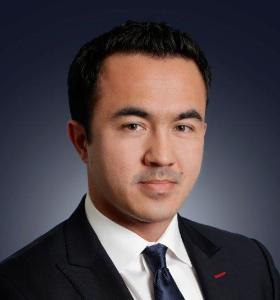
Mitch Steves is an Analyst at RBC Capital Markets primarily focused on networking equipment and semiconductor companies. In 2016 and 2017, he was noted as a “Rising Star of Wall Street Research” according to Institutional Investor magazine in three categories: Telecom & Networking Equipment, Semiconductors and IT Hardware/EMS.
He started at RBC in 2011 and launched coverage in 2015. Earlier, he held positions at Gleacher and Company covering hardware and networking equipment and worked as an investment banker at Cowen and Company.
He holds an economics degree from the University of California Berkeley.
In his 4,885 word interview, exclusively in the Wall Street Transcript, Mr. Steves clearly picks winners for the long term in the semiconductor sector:
“…If you look out, I mean, five, 10 years, there’s no real debate that you’re going to see a lot more spending on AI because it’s kind of an arms race. So whoever wins is going to have all the information to continue expanding their lead. It’s kind of a self-fulfilling prophecy.
But I’d say that the most obvious ones, at least near term, are going to be using AI for self-driving vehicles, using AI for ads as well, being able to figure out what type of ads to show people.
It’s going to be used for consumer purchases as well. So instead of you buying something on Amazon (NASDAQ:AMZN) — let’s say a GPU, for example — and then getting 20 different recommendations for the exact same thing, they’ll have better information in terms of what to sell you in the future.
I think those are two of the most near-term ones, advertising and then secondly self-driving vehicles in the next couple of years.”
His specific recommendations include the bellwethers of the industry:
…I’ll agree and say, “OK, the performance is probably the same, but that doesn’t matter because if your performance is the same, but it cost me tens of millions of dollars more in power consumption because your chip is just consuming too much power, then it doesn’t matter what your performance is.”
You can quite literally give away the Intel chip for free and compare it to an AMD chip, and nobody’s going to take the Intel chip because it just loses that much money over a year. I think that’s where we’re going, and note that Intel could catch up, but as we stand today, we think AMD gains share due to that math.
We’re going to more of an efficient frontier as well in semiconductors. You can’t just be the high-performance, high-power-consumption company.
You have to be essentially high performance plus low power consumption. This favors GPUs, FPGAs and companies on the smallest nodes.”
Get the specific stock recommendations and more of his sector analysis in the complete 4,885 word interview, exclusively in the Wall Street Transcript.